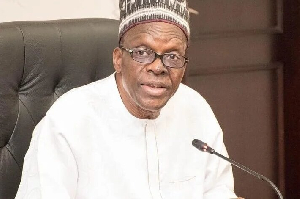Ghana has been lauded for its performance under African Growth and Opportunities Act (AGOA); more than doubling its exports to the United States to about $300 million between 2016 and 2017, reflecting a general growth of African exports to the US under AGOA.
Mr. Harry Sullivan, Acting Director for Economic and Regional Affairs of the Bureau of African Affairs, said African non-oil exports to the US under AGOA had grown from 1.3 billion in 2001, the year that the legislation was passed, to 4.2 billion in 2016, with the trend continuing to be positive since then.
He was addressing a press conference via telephone from Washington on AGOA and the US Government’s Economic Policy for Africa.
“We also saw another encouraging trend, which was that additional countries are taking more advantage of AGOA, so between 2016 and 2017, Ghana saw its exports to the United States more than double, with exports under AGOA quadrupling to more than $300 million,” he stated.
Mr Sullivan said Ghana could build on its good performance under the programme so far, by focusing more on value addition to its exports, especially agricultural exports like cocoa and Shea Butter and exporting them to the US.
“…Everybody knows, you provide a huge portion of cocoa to the world, so if you could do some first-class processing in Ghana, that would add value to your economy,” he said.
“Shea butter, I believe, is also present in northern Africa,” he said, and urged Ghana to look at those kinds of agricultural products as well as light industry.
He noted that Ghana was a success story in Africa and could build on those attributes by moving from a market entrepreneurship to larger scale industries.
“…And that can happen perhaps through cooperatives,” he advised.
He, however, urged Ghanaians and other Africans to link up with potential purchasers in the United States.
He added that although the American market had huge benefits, there was the need to produce to the quality and quantity necessitated, and sometimes cooperatives could provide a mechanism for pooling resources in order to reach the required quantities.
Statistics on US-Africa Trade through 2017 showed that total U.S. trade with sub-Saharan Africa rose 16.8%: $33 billion in 2016, to $38.5 billion in 2017.
U.S. exports to Africa also increased by four per cent to 13.1 billion, while African exports to the United States rose by more than 24 per cent to more than 24 billion.
“Increased oil exports did account for a large share of this increase, but we also saw some encouraging signs of diversification,” he said. African exports of agricultural products to the United States rose by 10% to 2.7 billion in 2017.
Click to view details



Business News of Thursday, 15 February 2018
Source: ghananewsagency.org

















